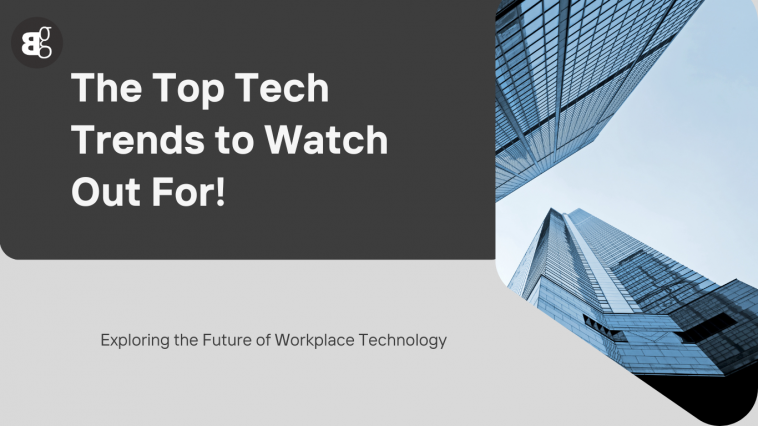In ten years, how will the world appear? We can be certain that it will look very different given the current rate of technological advancement and the ongoing economic, environmental, and geopolitical unrest.
In particular, the workplace is continuously changing. The Covid-19 pandemic sparked significant change in many businesses that is still going on today. Furthermore, a lot of aspects of day-to-day work in a variety of industries and professions are already changing due to artificial intelligence, especially with the new generative AI tools.
Naturally, ten years is a long way off, and it’s difficult to predict exactly what life will be like by that point. However, we can make an educated estimate by extrapolating current events and speculating about future societal changes that might affect our lives more broadly. As we enter the second half of the next decade, these are some of the trends that I believe should be on the agenda.
Robots and AI In The Workplace
The most revolutionary technology of the ensuing ten years will be artificial intelligence (AI), which will permeate every aspect of our professional lives by 2035. AI will change our perception of tools more than mechanization or digitization. This is significant because, millions of years ago, our ability to make tools set us apart from other animals and allowed us to evolve into the dominant species on Earth. By 2035, tools will be our cooperative, thinking partners.
AI will help us be more creative, efficient, and capable of coming up with novel solutions to problems. Apart from the current digital tools, it is probable that self-governing, extremely mobile robots will aid us in sectors such as building (laying bricks, pouring concrete, wiring), farming (sowing and harvesting crops, health monitoring), logistics (warehouse work, inventory management), delivery (delivery), environmental cleanup, and emergency response. Intelligent machines will take care of recruiting, compliance, scheduling, record keeping, and creating customized work schedules for office-based jobs. AI tools will also assist us in keeping an eye on our health, managing our work/life balance, identifying signs of stress or overwork, and guiding us out of potentially hazardous situations.
Sustainable And Resilient Workplaces
Unfortunately, it appears that in 2035 there will be an even greater urgency to take action to protect our planet. It appears inevitable to those who follow science that new laws and regulations will be introduced, ones that could have a significant impact on many aspects of our lives. Environmentally friendly initiatives will no longer be “nice-to-haves” but rather essential to a company’s survival in the workplace.
Eco-friendly, sustainable practices will become deeply embedded in business operations and culture due to growing energy costs and growing water scarcity in many regions of the world. The younger generation is becoming more conscious of sustainability, and as a result, a greater number of purchasing decisions will take into account a company’s environmental impact.
AI will also be crucial for building more resilient companies that can meet the demands of trying times. This will entail automating procedures related to flexibility and backup preparation. This will be essential to creating organizations that can flourish in harsh political and environmental conditions.
Hyper-Connected Digital Ecosystems
By 2035, the digital platforms and tools we use every day to work efficiently will be hyper-connected, ever-present virtual workspaces that foster teamwork and productivity. Because virtual reality (VR) environments are so immersive, communication with colleagues remotely is as simple and intuitive as it would be if everyone were in the same room. As a result, barriers to remote teamwork are essentially nonexistent.
Nearly every aspect of the workplace, including the companies we work for, the points of contact with customers, and the goods and services we provide, are digital twins. Upskilling and learning will occur through completely integrated platforms and individualized learning pathways, allowing for on-the-job training in secure, risk-free augmented reality (AR) environments. This highly interconnected digital environment will promote innovation, experimentation, and continuous learning while streamlining operations to increase productivity and efficiency.
The Human Renaissance
Okay, so maybe this is more of an anti-technology trend than a technology trend. No, I don’t think there will be a significant pushback against technology or a return to a time before the internet.
However, I do think that in a world where self-aware, intelligent machines are the norm, there will be a growing recognition of the skills that are intrinsically human. People with strong creative problem-solving abilities, emotional intelligence, critical thinking, and interpersonal communication skills will be more and more valued contributors to any workforce we decide to enter.
As the next generation of great leaders and thinkers will surely hand over some of their decision-making and strategic planning to machines and algorithms, this may require some ego-shedding. The attitude of “my way or the high way” will not be tolerated much. It won’t be a complete handoff, though. People who can combine advancing technological efficiency with a human touch and attributes that are still difficult for machines to imitate will be in great demand.




